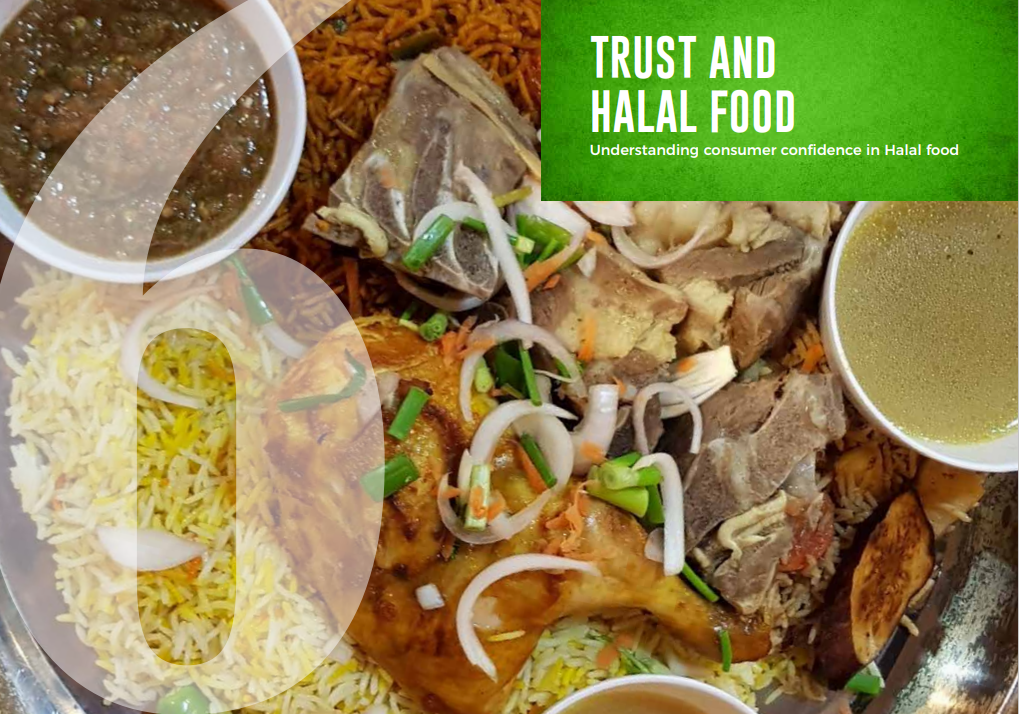
Before delving deeper into the topic, there is a need to understand the term “Halal”. Halal means permitted, authorized, or lawful as per Islamic Sharia Law. Similarly, Halal food is the food that complies with this rule. Haram, on the other hand, literally means forbidden or unauthorized, or unlawful. According to Islamic Sharia Law, the consumption of Haram food is not permitted.
It is extremely important to understand that it is not only the ingredients that make a particular food Halal or Haram. The Islamic slaughter methods distinguish Halal from Haram. The food industry targeting the Muslim population has to ensure their production methods adhere to these methods. From processing to purchasing, quality control, and warehousing, every step should be based on the Halal assured system.
This being said, according to a study conducted by Mastercard-CreescentRating in 2021, the Muslim consumers of Singapore have more trust in the eateries and food production houses that are Halal certified. Additionally, Muslim consumers are likely to buy from establishments that have a positive Muslim-friendly rating. Other factors like transparency in the use of Halal ingredients and Arabic logos helped sellers build a trusting relationship with the consumers of Halal food.
In Singapore, many establishments make use of the “No Pork, No Lard” sign to attract Muslim consumers. However, most of the consumers are towards the establishments that are Halal certified. This is primarily because it is widely believed by Muslims that just saying no meat or no lard is not enough. All ingredients as well utensils have to be Halal too not to forget the lawful slaughter methods.
The use of lard is preferred over other types of oils because it is cheaper. Establishments that care more about the profits and less about the needs of Muslim consumers display the No Pork No Lard sign instead of a Halal food logo or a certificate.
According to the consumer perceptions, this sign is put up by establishments either to boost their business by attracting Muslim consumers or because they are not interested in buying the Halal certification.
Hence, there are few to no consumers who are in favor of buying from such establishments due to a lack of trust and false sense of assurance. Consumers are only likely to patronize if the brands put forward a variety of Halal food options, Halal logo, and cross-examination of meat and alcohol in the food resulting in increased trust in the producer.
.jpg)
Image Source: Crescentrating
The study conducted by Mastercard-CrescentRating in 2021 revealed three different levels of assurance of ongoing Halal assurance practices by Food establishments. As discussed earlier, it might be easier for the producers to get away with the signage of “No Pork No Lard” but the stronger customer assurance lies in the brands that cater to the Halal food needs of Muslim consumers through proper certification after trust development and cross-examination.
In short, the stronger the Halal food assurance, the greater the consumer trust. Establishments can take from these insights and invest in Halal food policies to encourage Muslim consumers to buy from them with maximum transparency.
Experts have suggested that by Halal, Muslims do not refer to the permissible food slaughtered a certain way but also the one that is prepared in a clean hygienic environment. Consumers have become more conscious of where the ingredients are coming from and how they are being prepared. Here, special education and awareness are needed on the part of business owners to understand the needs of Muslim consumers and not judge them by their choices.
Food establishments in Singapore are catering to the needs of different types of customers but still, there is a lot more to learn and practice in terms of Halal food matters as it is not just pork or lard that is Haram but alcohol as well.
According to the Islamic Religious Council of Singapore (MUIS), Halal food brands in Singapore face multiple challenges in terms of trust-building. Some of the challenges include certification that comes as a prerequisite of the quality management system. Moreover, the food brands have to ensure Halal food integrity with separate spaces for the preparation of Halal food. Many food vendors find it hard to manage space for centralized food preparations due to high rental costs.
Another important gap in the Halal food industry is that the Halal certification is used to attract consumers online but there is no physical presence of such certificate on the premises raising concerns among Muslim consumers.
.jpg)
Image Source: Unsplash
All in all, these problems need to be addressed by making inclusive policies to address the needs of Muslim consumers regarding Halal food. Proper education, awareness, and communication between the sellers and buyers will help push the barriers and take Halal food establishments in Singapore to places.